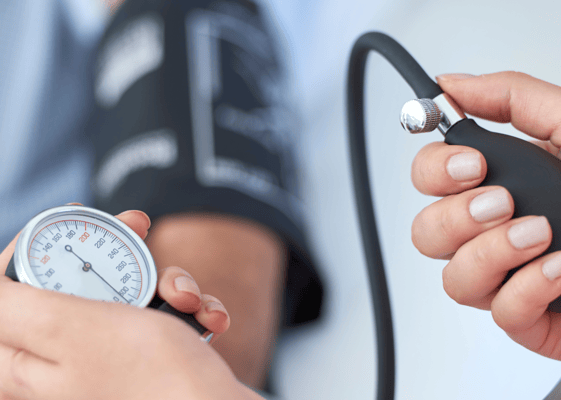Ten ways to keep your Blood Pressure in Check
Taking care of your blood pressure is essential for overall health, and it's something people of all ages should prioritise.
Taking care of your blood pressure is essential for overall health, and it's something people of all ages should prioritise. Here's a comprehensive guide to help you keep your blood pressure in check:
Stay Active: Engage in regular physical activity to promote heart health. Aim for at least 30 minutes of moderate exercise daily, such as brisk walking or cycling.
Maintain a Healthy Weight: Keep your body mass index (BMI) in the healthy range. Losing even a small amount of weight can significantly lower blood pressure.
Adopt a Balanced Diet: Consume a diet rich in fruits, vegetables, whole grains, and lean proteins. Reduce sodium intake and limit processed foods to promote heart health.
Limit Alcohol and Quit Smoking: Excessive alcohol consumption and smoking can contribute to high blood pressure. Limit alcohol intake, and if you smoke, seek support to quit.
Manage Stress: Practise stress-reducing activities like meditation, yoga, or deep breathing exercises. Chronic stress can contribute to elevated blood pressure levels.
Regular Health Check-ups: Monitor your blood pressure regularly, especially if you have a family history of hypertension or other risk factors.
Adequate Sleep: Ensure you get sufficient and quality sleep. Lack of sleep can contribute to increased stress and elevated blood pressure.
Limit Caffeine Intake: While moderate caffeine consumption is generally safe, excessive intake can lead to a temporary spike in blood pressure.
Stay Hydrated: Proper hydration supports overall health, including cardiovascular health. Aim to drink an adequate amount of water daily.
Consult with Healthcare Professionals: If you have concerns about your blood pressure, consult with healthcare professionals. They can provide personalised advice and monitor your health regularly.
Remember, maintaining healthy blood pressure is a lifelong commitment. Small lifestyle changes can collectively make a significant impact on your cardiovascular well-being.


